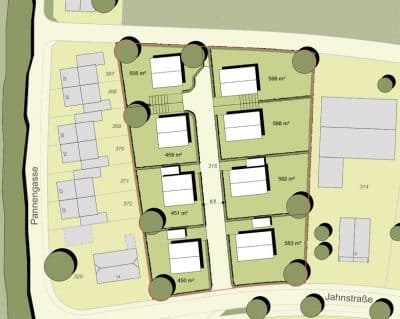A planned eco-friendly residential development in Bedburg near Cologne will see the installation of fuel cells to meet residents’ heating needs. In a collaborative project between the city, energy corporation RWE Power and manufacturer Viessmann, eight homes in Bedburg’s Königshoven district will be equipped with state-of-the-art heating units. According to KlimaExpo.NRW, a North Rhine-Westphalian state initiative, the single-family neighborhood near the open-pit mine Garzweiler would be “Germany’s first-ever residential development that uses only the latest residential fuel cell technology to provide heat and power.”
Not only can the owners of the eight new buildings choose a fuel cell system to their liking, but they will benefit from more than one program to cover part of the cost. Through its energy efficiency measure, the government-owned KfW bank will offer grants to buy the unit, whereas RWE Power will provide energy and grant consulting services, along with added financial support. Viessmann, too, will open its coffers and bring the funding total up to a maximum of EUR 14,250.
The user-friendly fuel cell heaters can be controlled via smartphone or tablet. They can also feed excess energy into the grid, from which power will be drawn if they cannot meet demand.
“We like the idea of having a particularly efficient home heating system that generates power, basically, on the side,” explained Michael Schiffer, who bought one of the homes last November. In a way, the fuel cell heater is his personal contribution to transforming the energy sector. Its round-trip efficiency saves his family both heat and electricity costs compared to conventional units.
It also reduces carbon dioxide emissions by five tons each year. Schiffer professed that this was “of course, only a small amount” right now, but added that “to protect the climate, it is vital that the market for this innovative technology keeps growing.” If a battery were added, the carbon footprint of heat and power generation could be another 50 percent lower.
“This project is a prime example of what kind of potential future-proof heating technologies have. Thanks to government funding, they can provide long-lasting environmental and economic benefits.”
Heinrich Dornbusch, chief executive of KlimaExpo.NRW


























0 Comments